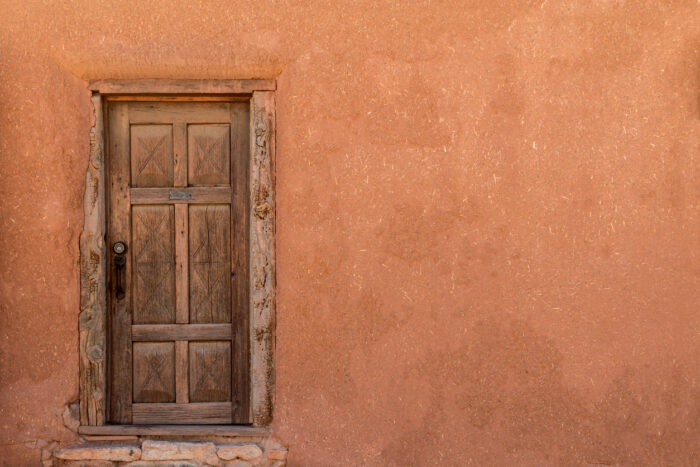At this time of year, I often think of a story I learned from Reb Mimi Feigelson the summer I started learning Jewish texts. I had found my way to more traditional learning through my Hillel—I had just discovered the Talmud for the first time, my Hebrew was poor, I was cutting my teeth on the music of Friday night service, and I was searching to immerse myself in that wisdom of my ancestors.
The story goes like this. Once, there was a shtetl. And like every good shtetl, this shtetl had a shtiebl, a small synagogue for the community. And that shteibl had a wise rabbi, and a shames, the man who took care of the synagogue and its day-to-day needs.
And, like every good shtetl, this town had an outcast: the Holy Outcast, who lived at the very edge of town. He didn’t bother the rest of the townspeople, and they didn’t bother him.
Now, one of the shames’s duties was, during the days preceding Rosh Hashanah, to go around to everyone’s houses to wake them up for slichot, for the morning penitential prayers.
One day, very close to Rosh Hashanah, the shames died suddenly, leaving his wife and five children. The community decided that instead of merely giving them some charity to keep them from going hungry, they would actually hire the shames’s wife to do his job in his stead. This way, she would be able to have the dignity of earning to support her family.
The next morning, the shames’s wife wrapped herself in coats and shawls, because it was very cold at this time of year in Eastern Europe, and set out to wake up the men of the town for morning minyan. She decided to start at the farthest house and make her way back toward her home, so as not to leave her children beyond reach for too long.
Not knowing, the shames’s wife walked and walked until she reached the very farthest house, one that she had not noticed before: the house of the Holy Outcast. She knocked on the door. The Holy Outcast came to the door and said with surprise, “No one has ever woken me up for slichot.”
Then he looked at her standing there in her shawls and her husband’s winter boots, and he said, “Go home. Be with your children. I will wake everyone up.”
Back in the synagogue, the rabbi was waiting. He looked at his clock once, twice, three times. The minutes ticked by, and still, no one was there for morning services. First ten minutes, fifteen minutes, a half hour. Finally, one by one, the men he usually relied on to make a minyan right on time every morning trickled into the synagogue, late, rubbing their eyes. He asked each one as he entered what had happened, and each one had the same story:
The had overslept! No one had woke them up! And they had each had the strangest dream, in the meantime! In the dream, they had heard a knock at their door, had gotten out of bed and opened their door to find none other than the Holy Outcast, who had never attended services in his life, waking them for slichot services.
“Go find me the Holy Outcast” the rabbi said to his two assistants, “and bring him here.”
His assistants returned, pulling the Holy Outcast behind them. “What do you want with me?” the Holy Outcast asked, annoyed to have been called out from his house.
The rabbi said incredulously, “These men have all had a peculiar dream this morning. They dreamed that they were awakened as usual for slichot services, but when they came to the door, they saw you standing before them.”
The Holy Outcast replied, “It was no dream.”
A great silence filled the small synagogue. The men bowed their heads in shame, as they realized what had happened. The rabbi smiled.
Being Asleep and Answering the Door
Here was the problem with the townspeople: they lacked imagination, or the belief that someone could surprise them, and do something outside of the pattern they had come to expect.
They were so unable to allow the possibility that their expectations could be defied, that they actually thought they were dreaming! He came to the door, he knocked on the door, they heard it, they got up, they opened the door, they saw him standing there, and still they thought: I must be dreaming, and went back to sleep.
And so, of course, do we as well. We refuse to grant others the opportunity to surprise us.
Not only that, throughout the year, and especially at this time in the Jewish calendar, our new selves are trying to get through to us, the selves we want to become this year. But we say to ourselves, that’s impossible. How could I possibly pay more attention to the needs of my parents? How could I possibly make more time to care for my friends? How could I possibly start thinking more positively about the problems in my life? How could I possibly stop speaking badly about others? Insert your own “That’s impossible” into this list. We all have them, and they keep us from believing it is possible to change.
The story is not only about those townspeople getting up for services in the morning. It is about all of us: as we sit in our seats on Rosh Hashanah, we are all asleep, waiting to be awoken.
The shofar, that trumpeting, timeless cry: the shofar is our knock at the door. “Wake up,” the shofar says to us. “See who is at the door.”
Will we hear the knock, above the din of our busy lives?
And when we answer the door, will we believe in the self who is standing there before us? Who do you want to meet on your step as you open the door to this New Year?

